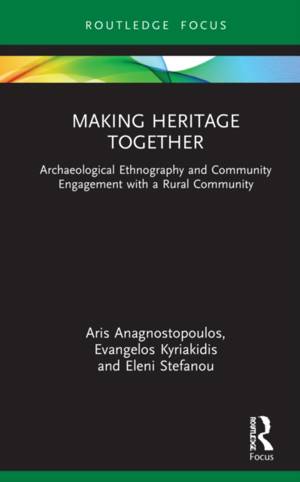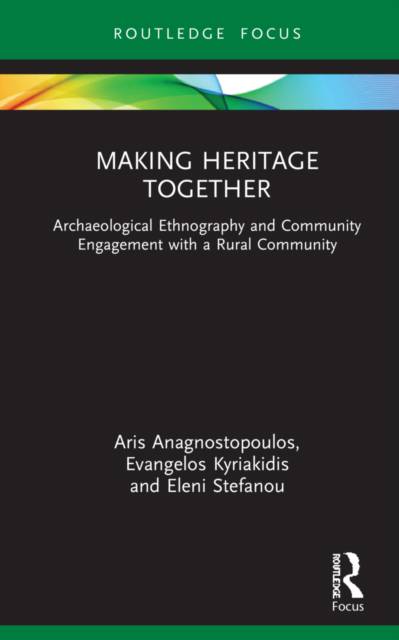
- Retrait gratuit dans votre magasin Club
- 7.000.000 titres dans notre catalogue
- Payer en toute sécurité
- Toujours un magasin près de chez vous
- Retrait gratuit dans votre magasin Club
- 7.000.0000 titres dans notre catalogue
- Payer en toute sécurité
- Toujours un magasin près de chez vous
Making Heritage Together
Archaeological Ethnography and Community Engagement with a Rural Community
Aris Anagnostopoulos, Evangelos Kyriakidis, Eleni StefanouDescription
Making Heritage Together presents a case study of public archaeology by focusing on the collaborative creation of knowledge about the past with a rural community in central Crete. It is based on a long-term archaeological ethnography project that engaged this village community in collectively researching, preserving and managing their cultural heritage.
This volume presents the theoretical and local contexts for the project, explains the methodology and the project outcomes, and reviews in detail some of the public archaeology actions with the community as examples of collaborative, research-based heritage management. What the authors emphasize in this book is the value of local context in designing and implementing public archaeology projects, and the necessity of establishing methods to understand, collaborate and interact with culturally specific groups and publics. They argue for the implementation of archaeological ethnographic research as a method of creating instances and spaces for collaborative knowledge production. The volume contributes to a greater understanding of how rural communities can be successfully engaged in the management of their own heritage.
It will be relevant to archaeologists and other heritage professionals who aim to maximise the inclusivity and impact of small projects with minimal resources and achieve sustainable processes of collaboration with local stakeholders.
Spécifications
Parties prenantes
- Auteur(s) :
- Editeur:
Contenu
- Nombre de pages :
- 130
- Langue:
- Anglais
Caractéristiques
- EAN:
- 9781032194745
- Date de parution :
- 28-02-22
- Format:
- Livre relié
- Format numérique:
- Genaaid
- Dimensions :
- 138 mm x 216 mm
- Poids :
- 259 g

Les avis
Nous publions uniquement les avis qui respectent les conditions requises. Consultez nos conditions pour les avis.






